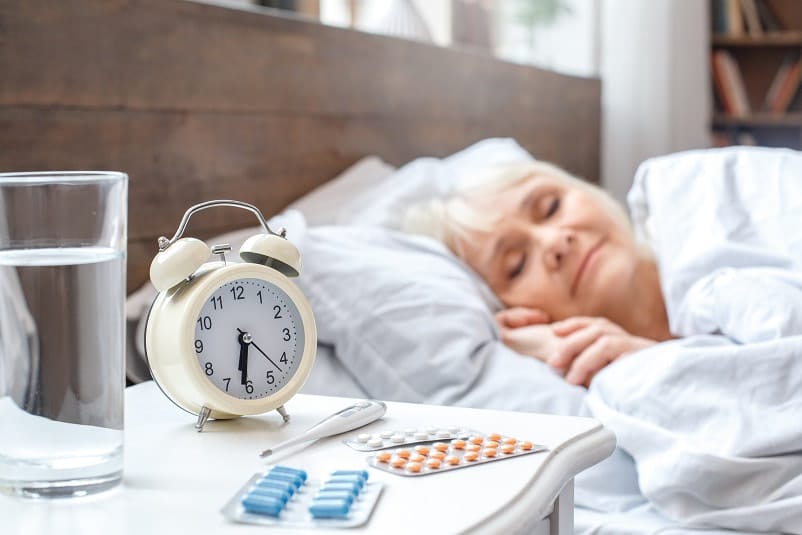What does the newest data say about sleep medications?
While researchers stress that further investigation is needed, the study’s general conclusion is that the risks are greater the longer people used sleep medications; the higher the dose, the greater the risk. Researchers reported that 15% of their study sample, or 4.6 million older adults in the US, reported routine use of sleep medication. An interesting correlation emerged over the 15-year study, which followed older adults: comparatively, there is a 79% increase in cognitive decline among White patients who use sleep aids 4-5 times per month. People of color seem to have some degree of immunity to those risks. However, it’s important to keep in mind that non-White seniors have increased overall risk factors such as diabetes and high-blood pressure, as well as different socioeconomic factors. This study is specific to people with long-term use of sleep aids only.
What medications are used to promote sleep?
There are a number of medications, both prescription and over-the-counter, that sleepless folks use to help them fall asleep and stay asleep.
Common prescription sleep medications:
There are a number of widely used medications to encourage sleep. However, sleep experts warn that sedation and sleepiness are not the same. Furhermore, there’s no evidence that sleep quality or number of hours slept are improved with the use of these medications.
- Z-drugs, or sedative-hypnotics, such as zolpidem, zaleplon, and eszopiclone.
- Benzodiazepines like flurazepam, estazolam, and temazepam.
- Antidepressants such as trazodone, doxepin, and mirtazepine.
- Antihistamines, both prescription and OTC including diphenhydramine, hydroxyzine, and promethazine.
- Atypical antipsychotics like olanzapine and quetiapine. These medication is not recommended for people with dementia and they come with a Black Box Warning:
-[DRUG BRAND NAME (drug generic name)] is not approved for the treatment of patients with dementia-related psychosis.
-The decision to initiate an atypical antipsychotic in an elderly patient with dementia is not one to be taken lightly.
-Older adults with dementia-related delusions and hallucinations should seek care from a neuropsychiatrist with specialized training.
Over the counter preparations
- These sleep aids include melatonin and valerian.
Why are sleep medications problematic?
As discussed above, there is a significant risk for developing dementia when sleeping pills are used in the long-term. In the short-term, there are well-documented risks for injurious falls, increased confusion, personality and behavioral changes, lethargy, and poor judgment. The use of sleep medications could potentially cause changes in cognition and daily functioning, although the research is unclear.
Anyone who’s a caregiver knows
If you’re a career, you’ve seen it: late afternoons bring increased agitation, anxiety, restlessness, and general distress to people with cognitive decline. This behavioral phenomenon is called “sundowning.”
People with cognitive problems have difficulties communicating and cannot tell us what is causing their distress; it is left to us as caregivers to pick up on non-verbal cues such as body language and facial expressions to offer safer solutions to allow adequate rest and alleviate discomfort. Observe your loved one for expressions of distress: grimacing, holding or rubbing an area of the body, and verbal indicators like saying “no” or “ow.”
Structure and routine go a long way in promoting a restful night’s sleep. Keeping a consistent and predictable daily pattern of mealtimes, bathing, exercise, and other activities helps, along with remaining wakeful through the day and exposure to natural light. Daytime napping can lead to nighttime wakefulness.
What to do
Consult a healthcare provider who specializes in sleep medicine. There may be something else going on that can be treated without the potential problems that come with sleeping pills, which should be the last resort. Quality of life will be much improved for the patient, and for their careers.

